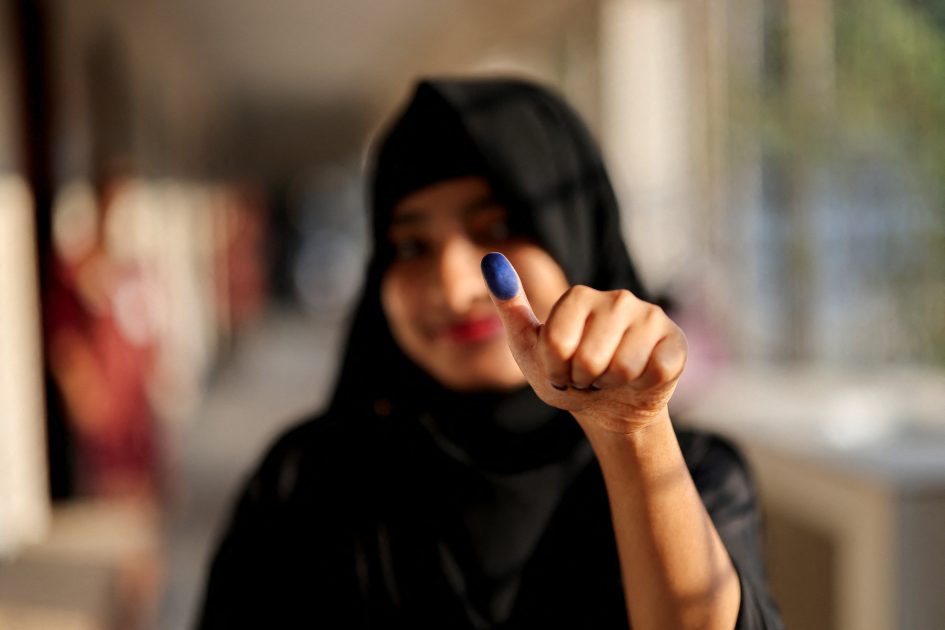- Web Desk
- Feb 16, 2026
Pakistan’s budget dilemma — will the middle class finally be heard?
While reaffirming the government’s commitment to improved fiscal management during the talks with the IMF, Finance Minister Muhammad Aurangzeb stated, without disclosing specifics, that the upcoming budget would go beyond a conventional revenue-and-expenditure exercise to ‘provide strategic direction’ to the economy.
The business class— identified by a United Nations Development Programme (UNDP) report as primary beneficiary of government’s favours in Pakistan — has typically been lobbying actively to influence budget making. In addition to submitting their demands directly to relevant authorities through multiple platforms, some have also launched aggressive media campaigns, universalized their demands and presented their interests as synonymous with those of the economy, the country and the general public.
While less visible, other interest groups — such as civil servants, the landed aristocracy, and the security establishment — who are also identified in the UNDP report as elite segments patronised by the government, are likely exerting pressure to secure a larger share of public funds.
Legislators and members of the government’s ministerial team have already granted themselves substantial salary increases, as reported in the media. In contrast, the voices of the most deserving segments of the population and underserved regions remain largely unheard or too muted to generate meaningful attention or influence policy priorities.
Released in 2021, the UNDP National Human Development Report (NHDR) for Pakistan focuses on inequality and its structural drivers. Titled “The three Ps of inequality: Power, People, and Policy”, the report estimates that economic privileges extended to elite groups, including the corporate sector, feudal landlords, the political elites and the powerful military, costs the country estimated $17.4 billion annually, or around six per cent of GDP.
It highlights how inequality is perpetuated by powerful groups exploiting their positions through discriminatory practices and flawed policies. Among these groups, the corporate sector is identified as a major beneficiary, enjoying tax breaks, preferential access to resources, and higher output prices.
“After achieving a degree of stability in the first year of its five-year tenure, largely at public expense, the current coalition government must now shift from survival-driven budgets to strategic ones. The focus should move towards empowering citizens and rebuilding public trust. Long-term stability depends not on merely meeting IMF’s benchmarks, but on investing in productive capacity, promoting equity and advancing institutional reforms,” remarked an economist.
“Budget 2025–26 should be fact-based, people-focused, business-friendly, and transparent. The government must end policies that unfairly burden the voiceless to cover governance and energy sector failures. Instead of token cash handouts, the focus should be on reviving agriculture and industry to create jobs and enable dignified livelihoods,” noted another senior analyst.
“The tax structure must be made more progressive by raising the share of direct taxes by at least 3 percentage points. Imposing income tax on families below the poverty line is unjust — the exemption threshold should be increased to income of Rs1,300,000 annually instead of the current Rs500,000. While the government swiftly passes on global oil price hikes to consumers, it must also lower the petroleum development levy to ensure the public benefits from price declines.
“In times of fiscal stress, the Public Sector Development Programme (PSDP) is often the first to face cuts. With private investment subdued, the government must not only boost development spending but also ensure timely disbursement. It should consider engaging military leadership to explore funding additional security needs through their commercial ventures, at least for the current fiscal year.
“To curb unproductive expenditures, the federal government should close obsolete ministries and departments. It must also implement strict oversight of official overseas travel and other wasteful spending. Promoting technology adoption and extending meaningful support to tech startups — through incentives, streamlined policies, and access to funding—should also be a priority,” he added.
Pakistan, a country with proven military strength but a chronically underperforming economy, faces a range of structural challenges: ad hoc policymaking, deep-entrenched inefficiencies, donor dependency, uneven regional development, widening inequality, low investment and productivity, a growing youth bulge, a shrinking middle class and a fragile democratic system. In this context, a well-crafted national budget must prioritise addressing these vulnerabilities, critical not only for economic stability but also for sustaining and strengthening national security.
The budget 2025-26, therefore, must allocate resources strategically to reduce reliance on domestic and external debt, address income inequality, rebuilds and empower middle class and reinforce democratic institutions through inclusive and accountable governance.
The government economic team is reportedly engaged in pre-budget consultations with the IMF, that bailed Pakistan out when it was about to default with a 37-month $7 billion Extended Fund Facility in September 2024 and has so far disbursed almost $2.1 billionn. Earlier this month, the IMF further extended its support by granting Pakistan access to $1.4 billion under the Resilience and Sustainability Facility. In return, the Fund expects Pakistan to stay the course on key reforms aimed at ensuring fiscal stability. These include maintaining consistent macroeconomic policies, building foreign exchange reserve buffers, broadening tax base, enhancing competition, reforming state-owned enterprises, rationalizing tariffs, improving quality of public services and energy sector viability, and bolstering climate resilience.






